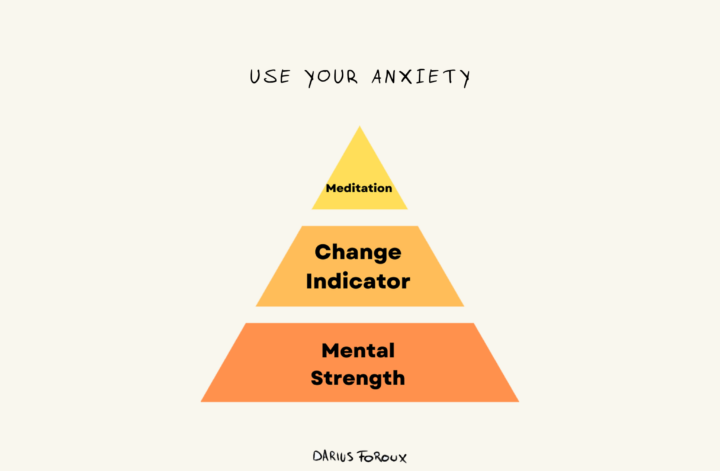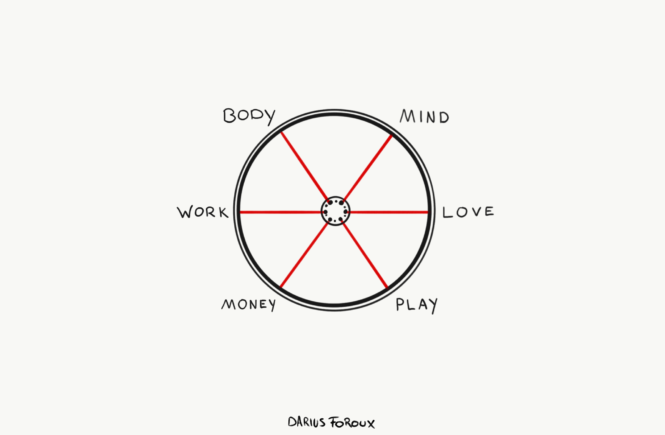In 1936, three years before WWII started, a Russian Orthodox family of four fled to the Siberian “snow forest” to escape religious persecution. The couple, Karp and Akulina Lykov, their 9-year-old son, and a 2-year-old daughter, only took a few possessions with them.
After a trek in the wilderness, they settled somewhere close to the Mongolian border, where they started building a succession of primitive huts. The Lykovs settled down there for good. They even had two more children, who were born in the wilderness.
The family spent their days hunting, trapping, and farming. The mother of the family, Akulina, died of hunger in 1961. She chose to feed her children.1Source:https://www.smithsonianmag.com/history/for-40-years-this-russian-family-was-cut-off-from-all-human-contact-unaware-of-world-war-ii-7354256/ But the family remained in the wilderness until a geologist discovered them in 1978. The Lykovs lived there without any form of contact with the outside world for 42 years.
1981 was a tragic year. Two of the children suffered from kidney failure, and another member of the family died of pneumonia. Karp passed away in 1988 in his sleep. The only survivor, Agafia, still lives in the wilderness today. The Lykovs were featured in a 2013 episode of Far Out by Vice.
It’s a remarkable story of survival, teamwork, and self-control. Even after the family was discovered in 1978, and realized that there was no war, they decided to live in a harsh place you can only reach by helicopter most part of the year.
What is Self-Control and Why Does It Matter in Life?
Self-control consists of two components, namely, our ability to (1) resist temptations and (2) exercise control over our emotions and behavior.2I borrowed this definition from the paper, Executive Functions, by Adele Diamond (2013)
To me, self-control is one of the most important things in life. Without it, I wouldn’t even write this article. Let’s face it, when you share anything on the internet that gets enough views, you always get a bunch of hate. Every time that happens, I feel like quitting. But I also realize that there are people who find these articles useful.
Self-control is what keeps me level-headed. It makes me resist my temptation to get pissed off and walk away. There’s also scientific proof that self-control matters in life.
A 2020 study by Dr. Penny Spikins and James Green from the University of York, confirmed that self-control is one of the most important factors in human evolution:3Source: Not just a virtue: the evolution of self-control
“We rely constantly on self-control in every aspect of our lives. Although it is not an ability unique to humans, our elevated levels of self-control may have played a key role in our evolution. Self-control is likely to have been key to many of the traits such as prosociality, that define modern humans.”
The study shows that self-control plays a role in important aspects like deliberate practice, forward planning, time and energy investment, and tolerating discomfort. Think of the Lykovs. Without those factors, they couldn’t survive longer than two weeks.
Self-Control in Daily Life
Most of us want to have a fulfilling career, vibrant social life, good relationships with our loved ones, and be in good physical shape. Here’s the thing: We need self-control to make those good things happen. Let me give you a few examples of what that looks like in daily life.
Eating Healthy
I stumbled upon this question on Quora: “Why is it hard to eat healthy?” The top answer bluntly says, “You lack self control.” That made me laugh because it’s the truth. But we all know that it’s not that simple.
Eating healthy is a problem for many reasons. For example, most of us see food as pleasure—not fuel. In developed countries, we don’t have to worry about getting access to food for our survival.
But your body still has the natural urge to take advantage of food when it’s available. On top of that, there are many biological processes going on that we’re not aware of.
A recent study done at the University of Leeds, using data from 27,334 individuals from 12 European countries, showed there’s a clear link between education and diet.4The study says: ”Educational status appears to have positive influence on a healthy diet, particularly in low income countries, according to new research examining European nutritional data”
In my experience, eating healthy has nothing to do with your ability to resist buying junk food or ordering a pizza—it has everything to do with how much you educate yourself about your body. That’s an important reason why eating healthy is difficult: We lack the self-control to learn about nutrition, longevity, and how our bodies function.
Running a Business
I started my first business in late 2010 with my father. Our business, a laundry technology company, will turn 10 years old this November. We’re glad to reach this milestone because we realize most businesses fail in their first few years.
Recent statistics show that 65% of businesses don’t make it until their 10 year anniversary.5Source: U.S. Bureau of Labor Statistics, reported by Investopedia Why is that?
Again, this is just as complex as eating healthy food. But in my experience, it’s a business’s ability to adapt to changes. Our world is changing faster every year. In our business, we’ve kept adapting our products and services to stay relevant. We’re also driven by serving our clients.
Whenever I see businesses or experts use language like, “We’re the #1 provider of so and so,” or “I have 50 million views,” I cringe. Operating a business has nothing to do with you or your badges of honor. It’s about what you can do for your clients. It requires self-control to stay focused on what matters.
Self Improvement
Why is it so difficult to improve yourself? Every day, we have the choice to do something that pays off later instead of now. Going to the beach, binge-watching tv shows, reading gossip, drinking alcohol, smoking, or every other pleasurable activity in life always gives you an instant payoff.
You temporarily feel good. But in one year, two years, five years from now, you look back and you see no progress in your life. In life, we have to deal with a concept called “entropy.” Entropy is the Second Law of Thermodynamics and stands for the degree of disorder or uncertainty in a system. The basic idea is that everything inside a system moves towards disorder.
That’s why people often say, “Adapt or die.” If you don’t move forward, everything that’s related to you as a human will deteriorate. That’s a scary outlook. But here’s the problem: The degree of deterioration is so small that we don’t notice anything on a day-to-day basis.
You probably feel the same as yesterday, correct? Entropy in humans works over a longer period. That’s why we feel no urgency to improve ourselves today. We need self-control to invest in ourselves despite seeing a lack of daily improvement.
How to Develop More Self-Control
How can we get some? Based on everything you’ve read until now, let me share three things you can do.
1. Direct Your Energy Towards a Useful Pursuit
This is a common theme with every single person who demonstrates a high degree of self-control. There is always a higher pursuit or aim. The Lykovs survived in the wilderness to avoid prosecution and death.
Viktor Frankl famously survived the Holocaust because he was driven to see his wife again. Our lives might not have the same life and death stakes—we still need a pursuit.
And our pursuit must be useful to make it stick. Shallow pursuits that only fulfill your materialistic desires will not motivate you to control your urges. You need something that’s so important you’re willing to do whatever it takes.
When I started my blog, I was dedicated to sharing honest advice without hidden intentions. To me, that was a worthy pursuit. That drove me to write every single day. As of this writing, I’ve published 331 articles on my site.
2. Set Long-Term Goals
On a day to day basis, I rely on a system that keeps me productive. A system is a combination of productivity strategies that help you to stay consistent. Read more about systems here.6Credit goes to Scott Adams who popularized systems in personal development
But when it comes to long-term drive, I love to set goals because they will give you a clear sense of direction. In what direction do you want to take your life over the next three, five, ten, and twenty years? This is a very hard thought-experiment if you take it seriously.
Most people say, “I don’t know.” But you shouldn’t let yourself off the hook like that. Practice self-control by forcing yourself to pick a direction in life. You can always adjust. The long-term goals I set for myself five years ago have changed today. But at least they got me moving.
3. Minimize Stress
There’s some evidence that stress sabotages self-control.7Source: “Acute Stress Impairs Self-Control in Goal-Directed Choice by Altering Multiple Functional Connections within the Brain’s Decision Circuits” When you’ve had a stressful moment at work, it’s tempting to grab a candy bar (or two) to release the stress, right?
The same analogy is true for every other stress-related behavior. If you examine your life, you’ll find that you do a lot of things to simply manage stress. In fact, I believe that for most of us, that’s all that we do.
When I lived a stressful life years ago, I was only thinking about ways to get rid of that stress. But you’re only treating the symptoms that way. You can take as many vacations or buy as much crap you want from the internet, none of it will relieve your stress. If you truly want to minimize stress, you must design your life in a way that gives you a stress-level you can handle.
For me, that meant doing different work and leaving city life (I was living in London at the time). Some situations simply give us too much stress. A bad relationship is another common cause of stress. Unfortunately, there are no simple “step-by-step” tips for managing stress.
Sure, you can meditate, take long walks, read, or journal—all these things will lower stress—but there’s nothing better than designing a life that causes less excessive stress. But that doesn’t mean we should avoid all stress.
An optimal level of stress is actually great for us and it will slow down entropy. We need to find out what that level is for ourselves. Every person has a different stress tolerance. The key is to improve our self-awareness and understand what stresses us out. Then, we want to lower that to a level that we can handle without getting frustrated.
Conclusion
Let me repeat the definition of self-control again: Our ability to (1) resist temptations and (2) exercise control over our emotions and behavior.
These two aspects will increase the quality of our decisions and therefore, our lives. I hope that all of this inspires you to strengthen your self-control. Directing your energy towards a useful pursuit, setting long-term goals, and minimizing stress are all good ways to set yourself up for more self-control.
Strengthening self-control is one of those things that has no end goal. It’s a never-ending process that will only benefit us the more we master it. When’s the last time you heard, “That person has too much self-control?” Exactly. More is better.




